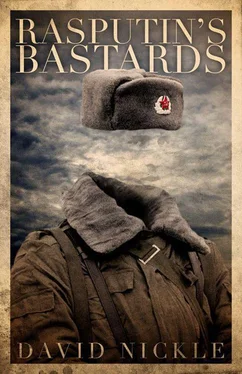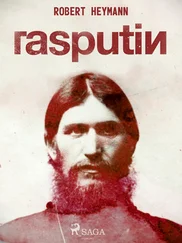This artefact was still not such an encompassing defence — as Kolyokov contemplated it, he saw a flock of sea birds disappear within its folds to the south, penetrating the fog as easily as a cloud bank. To the world of Physick, it was nothing but a blind.
But it was enough, to convince him that the trade they were arranging was a good one. And it had been more than enough to drive him from his one remaining sleeper’s mind.
Kontos-Wu had been dozing in her cabin on board the motor yacht when it began — in that semi-dreaming state when the two of them might confer directly, without the impediments of the conscious cover to intervene. As with all his sleepers, the conversation occurred in a metaphorical classroom. Kontos-Wu’s was in a boarding school that she understood to be located in Connecticut.
Kolyokov was there to discuss a crisis. Alexei Kilodovich had gone missing just a few minutes before. Kolyokov didn’t think he’d been killed — he’d have been able to tell that through other means. But the signal was lost all the same — and that was serious. Kolyokov had gone to great trouble to bring Kilodovich back into the fold. His presence in the upcoming exchange was crucial. His disappearance needed to be investigated.
Kontos-Wu sat at her little desk in the middle of the empty classroom. Outside the window, snow swirled and darkened the east coast American sky. The fluorescent tubes overhead flickered. She had a notebook in front of her and a thick pencil in her hand.
“In a moment,” said Kolyokov, standing at the front of the classroom in front of a chalkboard, “you will awaken and step out of your cabin. You will proceed first to Kilodovich’s cabin, and determine if he is there, and his state of well-being. If you are satisfied that all is well, you will return to your cabin. If you do not find him, you will search the ship. You will do so under the guise of a walk on deck to get some air. If anyone challenges you during this search, you will immediately become seasick, and vomit over the side of the ship.”
Kontos-Wu raised her hand.
“Yes?”
“Sir, what if the vomit fails to convince?” The metaphor that Kontos-Wu constructed for herself here — a plump, short-haired child — took on an expression that Kolyokov recalled from the hand-to-hand combat exercises. “May I—”
“No killing,” said Kolyokov, before she could finish. “We wish to retain Shadak’s goodwill for now. And there is the matter of your cover. You are an investor — engaged in unseemly business, with unseemly people, yes. But not a killer. If vomiting doesn’t work — maintain your cover. Which, as far as you understand, is the unvarnished truth. You are even less a liar than you are a killer. And if the truth doesn’t work — get out of there. Any way you—”
The fog had begun as a singularity, an atom of Mind, then exploded, driving him away as if it were the edge of a shockwave. It may not have been impervious to Physick; but to the probing of a dream-walker, it was solid as neutronium. Kolyokov was worried that the instruction might not have taken — but in the end, he was glad to have given instruction rather than risked dream-walking her himself. Because the fog would have made a perfect block — and had he been dream-walking her, she would have fallen.
Now — assuming she interpreted the instructions — assuming there were no completely unforeseen hitches in the coming hours — at least she had a chance.
Kolyokov skimmed across its surface, ran his hands along it as he flew. It felt rough to the touch — if the hand had been Physick, the fog would have torn awayflesh like it was the skin of a shark. As it was, Kolyokov could only maintain the contact for a few moments before he pulled away, and paused, just a few feet above the immense dome. It was unlikely, he thought, that he would find a way in from here. He sighed.
There would be no easy way.
So Kolyokov dove. Not at the dome — the impact of such a manoeuvre attempted so soon after the last one would no doubt shock his sleeping body into cardiac arrest — but at the waves that lapped about its perimeter. He slid through them as easily as did the sea birds, through the mind-fog above.
Kolyokov took a moment to orient himself in the cacophonic din of the ocean. There was too much life here — more to the point, too much life that communicated in the alpha range where Kolyokov walked. The salt water conducted the Discourse of that life like a giant single brain. A dream-walker could lose himself in such a place; fall into the rhythm of whale and squid and plankton, and let that replace his own, more disciplined cadence. The dream-walker thus ensorcelled would live and sleep and eventually die in the deep green song of the sea — unless a comrade knew where he had fallen, and had the wit and skill and inclination to come and pull him free. There were no such comrades these days, though, so Kolyokov had to rely upon himself.
Fortunately, Kolyokov also had his training, and even a little experience — once in the North Sea in 1973, and three times off Cuba, when he was helping hide the Petroska Station project. He dreamed himself a great, Mind-baffling sphere, and the din of the ocean quieted. The thing descended through the deepening green like a bathyscaphe.
“Byup,” said Kolyokov. “Byup. Byup.”
Byup was a mnemonic that Kolyokov’s masters in City 512 had impressed upon him early — an onomatopoeic metaphor for the sound that a Soviet submarine’s sonar made circa 1962. In an agent trained as Kolyokov was, the mnemonic would trigger a heightened awareness in the dream state, allowing the agent to discern details in dark or clouded conditions that would otherwise seem impenetrable.
Of course, nothing was truly impenetrable in the dream-walk — the “body” which Kolyokov occupied was a mnemonically constructed mirage of its own, and so were its eyes. At the core, Kolyokov knew he didn’t need light and visibility. Dream-walking, he could see anything he damn well wanted to.
But like the bathyscaphe buffer Kolyokov used to dive safe undersea, the sonar was a necessary metaphor for Kolyokov to access his own innate talent — without completely disconnecting himself from his own identity.
So, “Byup,” said Kolyokov again, and the mental sonar map of the sea around the cloud bank became marginally clearer.
The first thing he noted was that the cloud was a sphere and not merely a dome upon the water. No doubt it was as impenetrable underwater as it was above. He’d expected this, so was only a little pissed off. “Byup,” he said.
The ocean floor was not far below the sphere’s south pole — maybe fifty metres in parts. Kolyokov used a second and third “Byup” to determine that the sphere was no longer expanding — the distance between the two points remained the same through all three “byups.”
Metaphors like the “byup” were useful for things like that kind of work. Still, this was a part of his dream-walking Kolyokov didn’t relish. It showed just how long a time it had been since the art was practised by Italian peasants who wandered from their bodies each night armed only with metaphorical axes and spears, to fight the devils that threatened their crops. As with too much of the 20th century, it seemed that mechanization had overtaken the metaphors of dream-walking.
“Byup,” said Kolyokov. “Byup. Byu—”
He stopped abruptly, and hung silent a moment in the waters. The sonar had struck something hard — a great metal thing. “Byup.” Thirty metres long. “Byup byup.” Seventy-five metres beneath the surface. “Byup.” It was moving toward the cloud sphere. “Byup byup byup byup,” said Kolyokov, then listened as the picture assembled itself: the sleek metal form of the conning tower; the propellers churning sea water behind it; the byup-byup-byup of its own sonar, probing the Physick of the sea around it.
Читать дальше












